
BA (Hons) Special Educational Needs & Disability Studies
Develop both a theoretical and practical understanding of special educational needs and disability.


91% student satisfaction
National Student Survey 2022

Keep in touch with this course
Entry requirements
Three A-levels at grades CCD or above
Or BTEC triple grades MMP or above
Or Access 3-36 D/M with min 3D
And GCSE English Language at grade 4 or grade C or above
T Level Grade P (C+)
We are committed to safeguarding and promoting the welfare of children and students. All students are expected to share this commitment and demonstrate consistently high standards of personal and professional conduct.
DBS clearance required.
We will accept 2 AS levels in lieu of one A level but must be accompanied by 2 A Levels or BTECs (General Studies is excluded).
UCAS points 88
UCAS code X360
UCAS institution code P63
Duration Three years full-time
Any questions?
Contact Tara Godber, our Applicant Support Coordinator, if you have any questions. Email applicantsupport@marjon.ac.uk and Tara will get back to you.
Course Summary
This is the perfect degree for those who have an interest in Special Educational Needs and Disability and would like to work with children, young people and/or adults who have special educational needs or are disabled, and their families and carers. The course has been designed by both academics and professionals working in disability and Special Educational Needs and Disability (SEND) contexts.
Our BA (Hons) Special Educational Needs and Disability Studies enables you to recognise the key elements of exclusion in society and provides you with the tools to challenge this. You'll explore a number of theories and models regarding disability which will give you the confidence and the knowledge to work towards a more inclusive society.
The course also offers the opportunity to study abroad in Year 2, expanding your experience.
You will experience placements alongside taught modules, enabling theory to be put into practice. Sessions are delivered by professional practitioners to ensure that the degree remains up-to-date and relevant, as well as inspiring our students around potential careers and future research. We'll encourage you to explore disability policy and practice with critical reflection and curiosity.
Why this course at Marjon?
Learn about the ways disabled people are excluded from everyday life and how to recognise this
Student-led learning in small groups
Wide range of partnerships and work placements, for example working with children going through grief, SENCOs, or adults with learning disabilities
Study inclusion and integration from different standpoints, for example sociological vs educational, or medical vs social models of disability
Teaching is research informed so we deliver cutting edge knowledge
Focus on a topic of interest to you in the field of special educational needs and disability studies
Modules for this course
Course Snapshot
“ In our first year we did a lot of work on wellbeing and health, with a particular focus on mental health. We also touched on psychology and the way people learn. Now we’re learning social theories and how society thinks about different disabilities and their needs. In the third year we’ll do our dissertations and pick our focus based on where we want to go after the degree. Throughout the course there are opportunities for work placements to gain practical skills.”
1st Year
Education themes and concepts
Creative approaches to inclusion and learning
Introduction to disability studies
Health and wellbeing
SEN concepts and contexts
2nd Year
Comparative and international perspectives in SEN and disability
Disability and social theory
Developing inclusive education
Research methods
Interprofessional practice - safeguarding
Placement
3rd Year
Honours project
Critical issues in disability and care
Professional contexts - the role of practicioners
Rethinking Education through Critical Pedagogy
Mental health, lifelong conditions and young people
Current students say...
Lynn Stewart
“I enjoy the inclusivity of the course and the friendships. I feel accepted and welcome and my confidence has improved. All the staff and students are very supportive. The course has helped me to believe in myself and know that I can achieve and complete the things I start as a student with complex disabilities.”
Christopher Nicholls
“I enjoy the wide areas of study and the course leader, Jonathan, is a great lecturer and tutor. The Student Support team have been amazing with helping me and exploring why I’ve struggled with education in the past. There is a great variety of people on this course and as a mature student this has helped me to integrate into university life.”
Janine Bunker
"I was a nursery manager and the course has helped me to develop myself, to research and I’ve learnt the skills to become a lifelong learner. I wasn’t thinking about teaching when I started but I’ve seen alternative roles in Education and now I want to be a teacher. I’m also really passionate about Outdoor Learning but I wasn't 'outdoorsy' at all when I started. I’ve made lovely friends and there is on-campus nursery which my daughter goes to, it fits in with my life."
This course is perfect if you’re curious about
How can I support a child's wellbeing?
How does the Paralympics help or hinder the disability movement?
How should advertising, film or TV reflect or incorporate disability?
What can I do to support parents?
How does changing government policy impact on disabled people’s everyday life?
Do schools cause mental health problems or support them?
“ This level of shaping by both professional practitioners and service users should make this programme stand out from the crowd and encourage students to consider it in terms of a number of diverse and interesting career paths.”
See where our graduates are now
Stephanie Hole
“It was amazing, all of the lecturers were great and any questions I had they would answer above and beyond what I would expect. They taught me so much about disability and attitudes towards disability. It really influences everything I do in my job especially with ideas around dignity and disabled people. We can be doing more, that’s what the course really opened up for me and it prepared me with lenses on life to really do that properly.”
Stephanie is a Children's Practitioner for a Children with Disabilities team.
What might you become?
Work in charities, healthcare and education settings; promoting equality and access; managing a care service. Many of our SEN graduates have continued in higher education commencing teacher training, training to become a social worker, a speech and language therapist and into other health professions.
The programme also prepares students for a route into teaching via PGCE and Schools Direct in mainstream and/or special schools and other educational settings or for other postgraduate training courses.
We have close links with employers and professional organisations to ensure that the course meets the current demands of the work place. These links are further developed through work-based learning placements and a series of professional seminars delivered by external partners and key stakeholders in the final year.
How you’ll be taught and assessed?
How will you be taught?
Lectures are supported by small seminar groups that provide close contact with course tutors. Online materials support the learning and teaching environment; practicals, visits and placements enable students to put theory into practice.
How will you be assessed?
We fully recognise the value of assessing knowledge in a wholly flexible and individulised way. Therefore, assessments vary in format from essays, to producing materials to use on placement, from doing your own research to working in project groups to presentation delivery. We can adapt our methods of assessment depending on student needs.
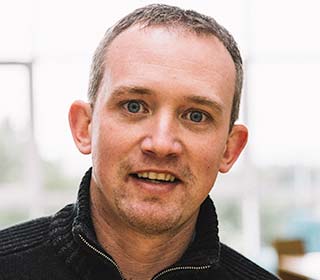
Dr Jonathan Harvey is a lecturer in Education who specialises in SEN and Disability. His research has been conducted primarily with disabled people. His published research includes work which explores identity and disability; narrative methods; and the daily lives of chronically ill and disabled people. He is currently researching the complexities surrounding navigating the higher education system when you are a disabled person.
Fees and funding
Fees UK students: £9,535 per annum
Fees for International students: £14,600 per annum
This fee covers your tuition and access to course-specific equipment and facilities, as well associated services including access to the library, study skills support, IT support, student support and wellbeing services and membership of the Student Union. There may be additional costs by course.
Funding available for this course
Our Student Funding Advisors offer confidential and impartial advice about your funding options.
Learn moreLecturers
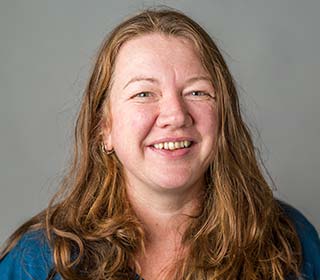
Hazel is an Associate Professor in Psychology. She teaches community psychology, neuropsychology, qualitative research methods and conceptual and historical issues in psychology.
She is a chartered member and associate fellow of the British Psychological Society (BPS), and a senior fellow of the HEA.
She is a member of the BPS Member Board and UEC. She is the manager of the Marjon Memory Cafe and supports students in providing wellbeing interventions for people across Plymouth and the local area.
Her interests include identity, student wellbeing and academic buoyancy, and student leadership. She is currently supervising 3 PhD students on projects relating to mental health, embodiment of cognition and supporting transitions in early years.

Kate specialises in Special Educational Needs and Disability. She is a Qualified Teacher of Children and Young People with Vision Impairment (QTVI) and worked across a range of mainstream and special school settings for 20 years. She has worked in Higher Education since 2015.
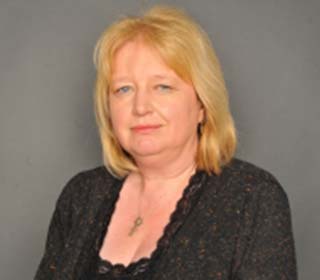
Jan was previously a primary head teacher in the South West and she now leads a teaching team at Marjon who together draw on decades of classroom experience and wide-ranging research specialisms to deliver Education courses.
Find out more about studying BA (Hons) Special Educational Needs & Disability Studies at Marjon
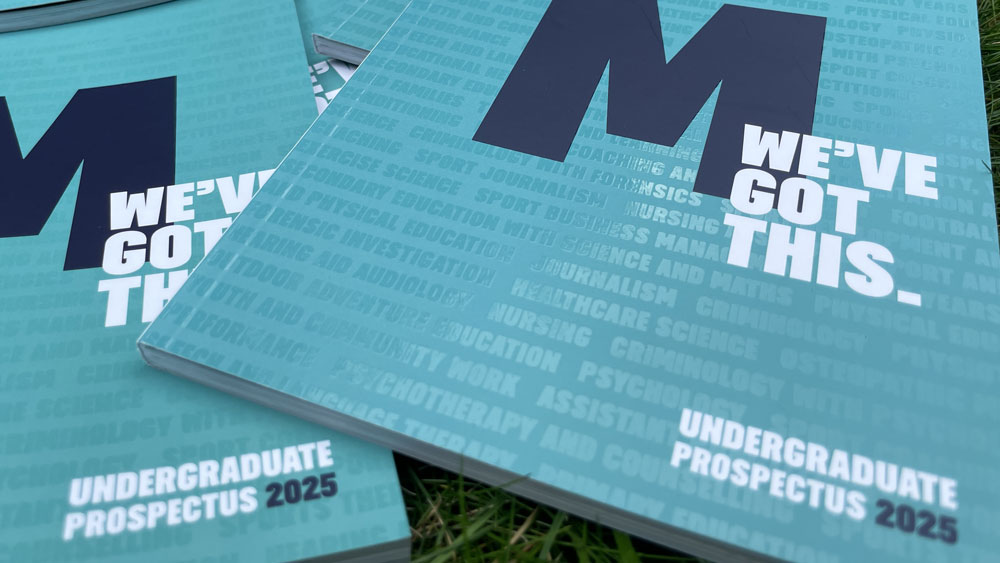
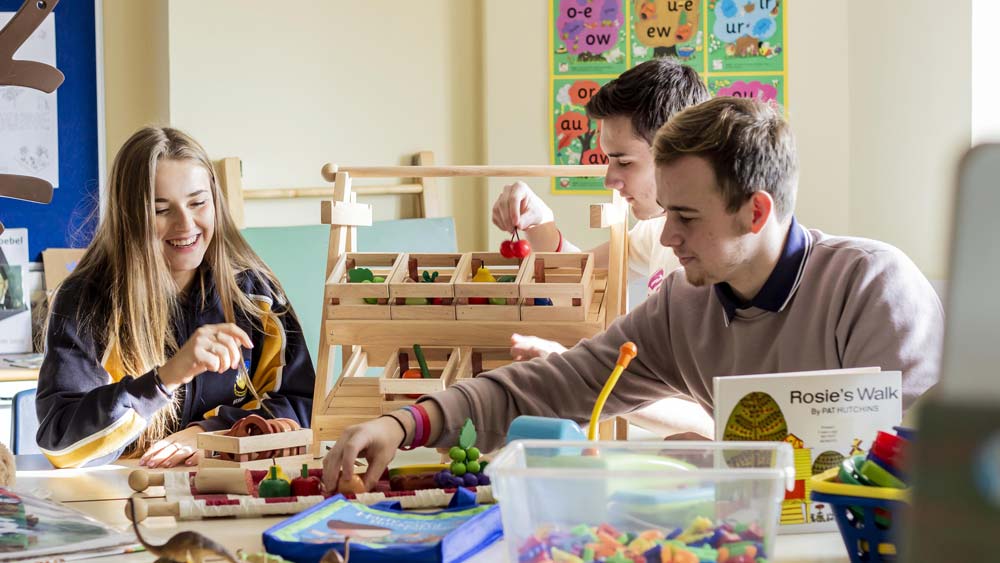
Discover Uni collects data about university courses in the UK. All universities publish Discover Uni data on their online course pages enabling you to compare similar courses at different universities.



